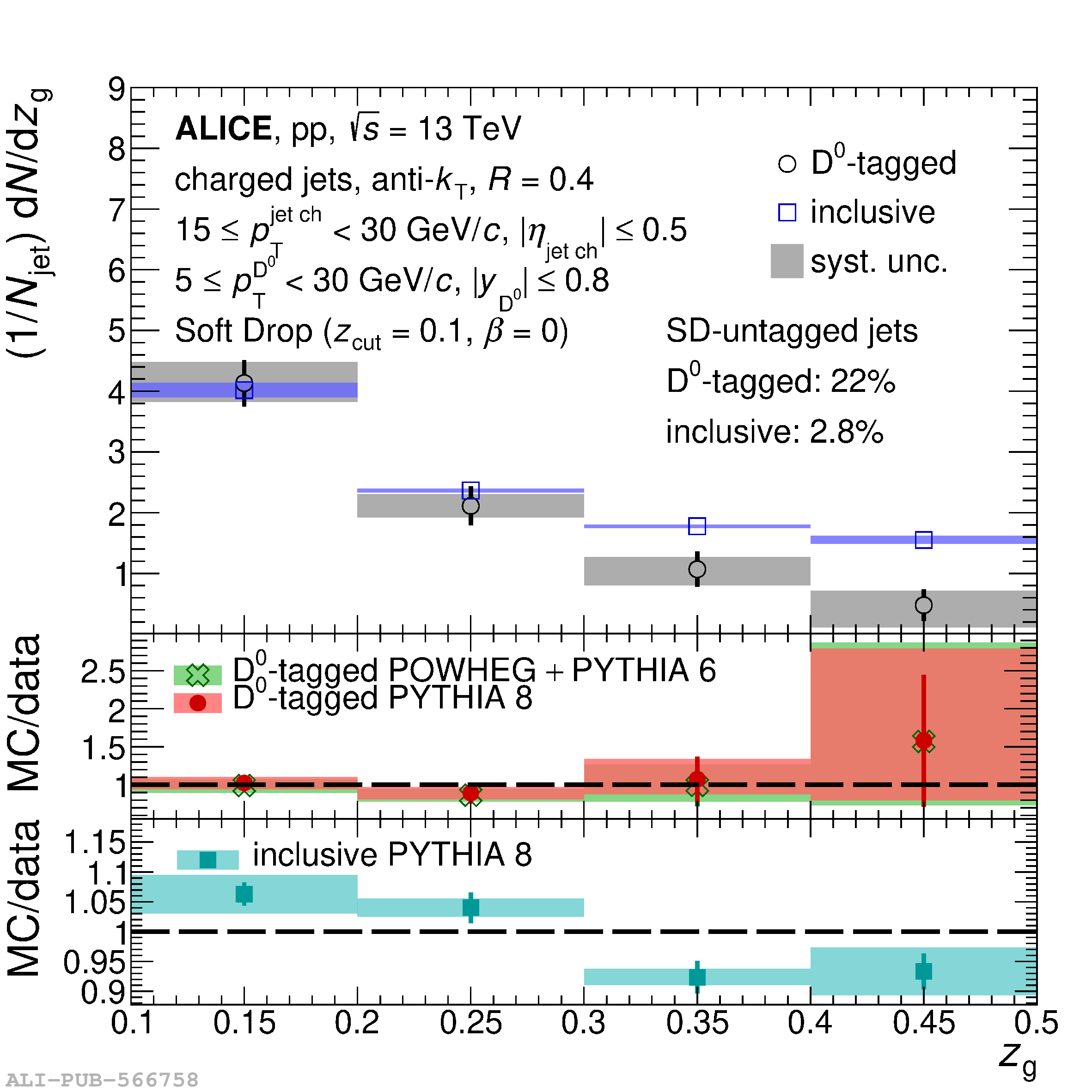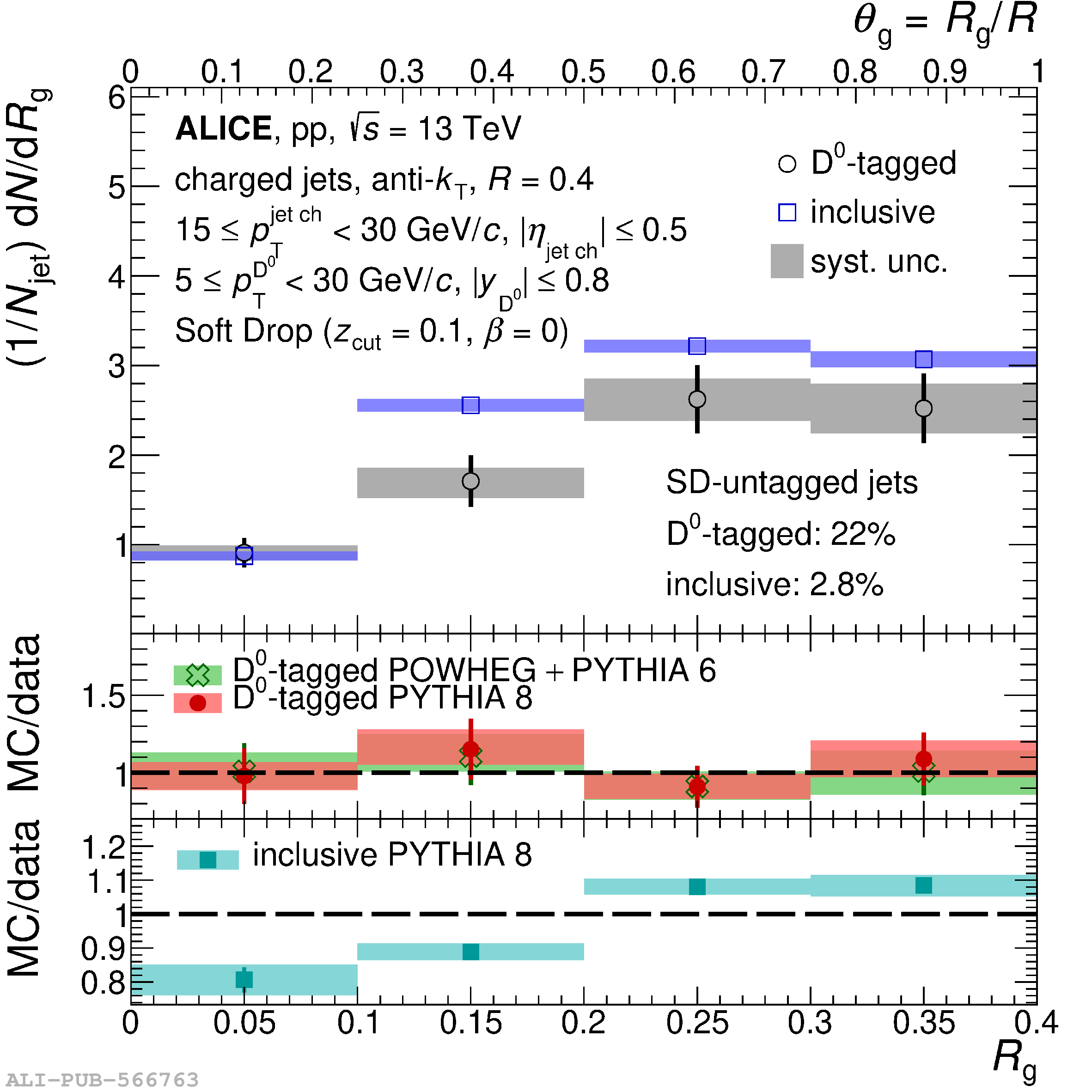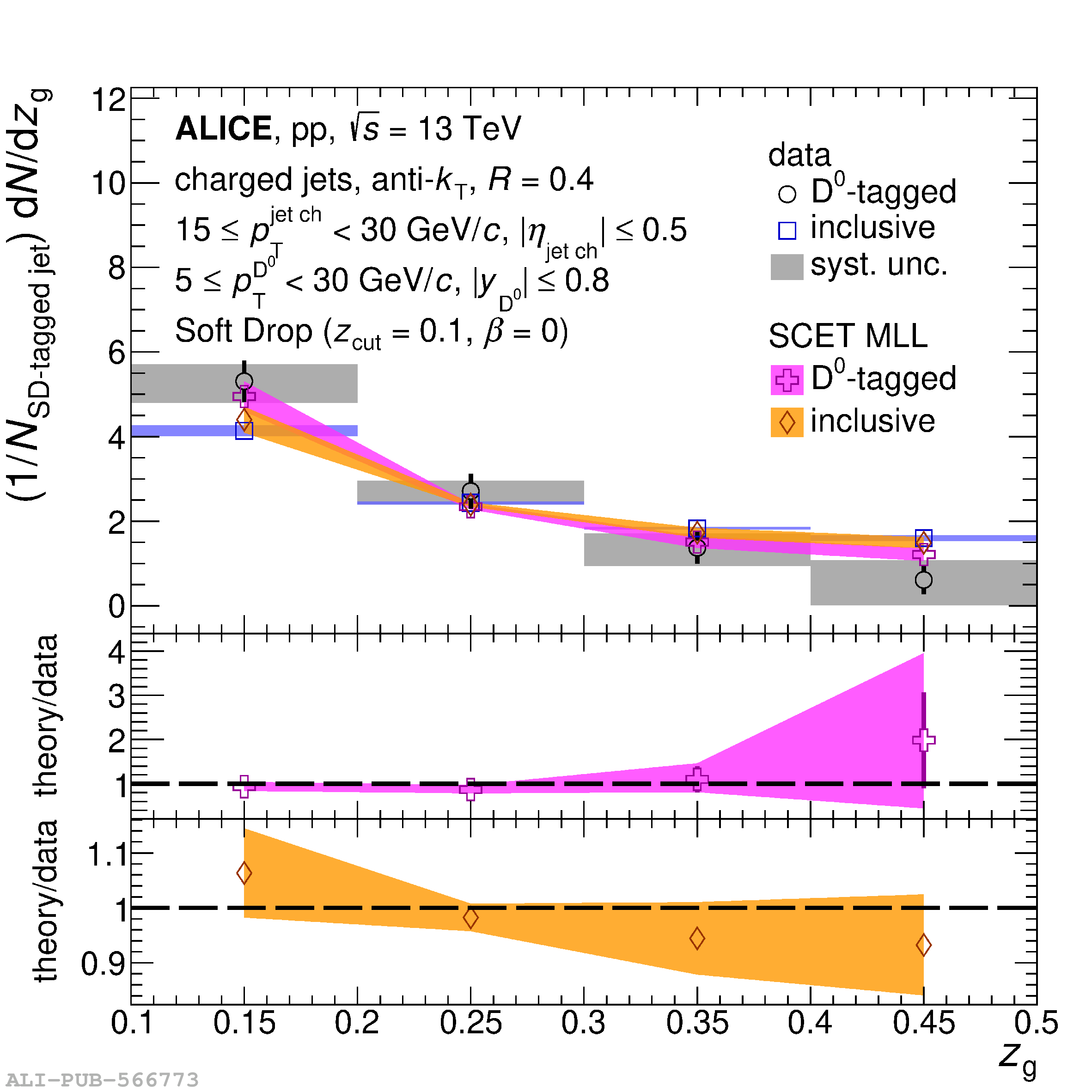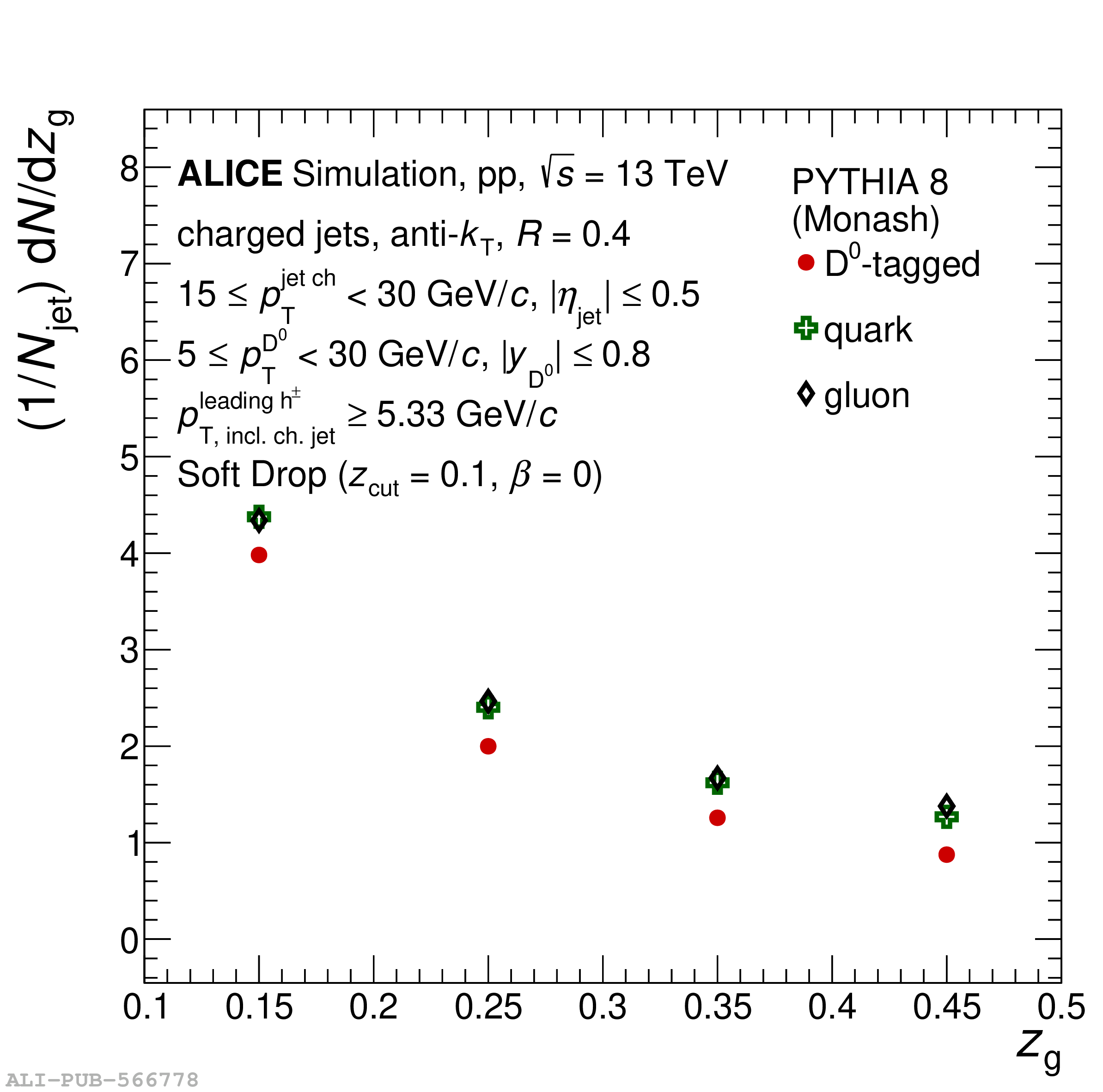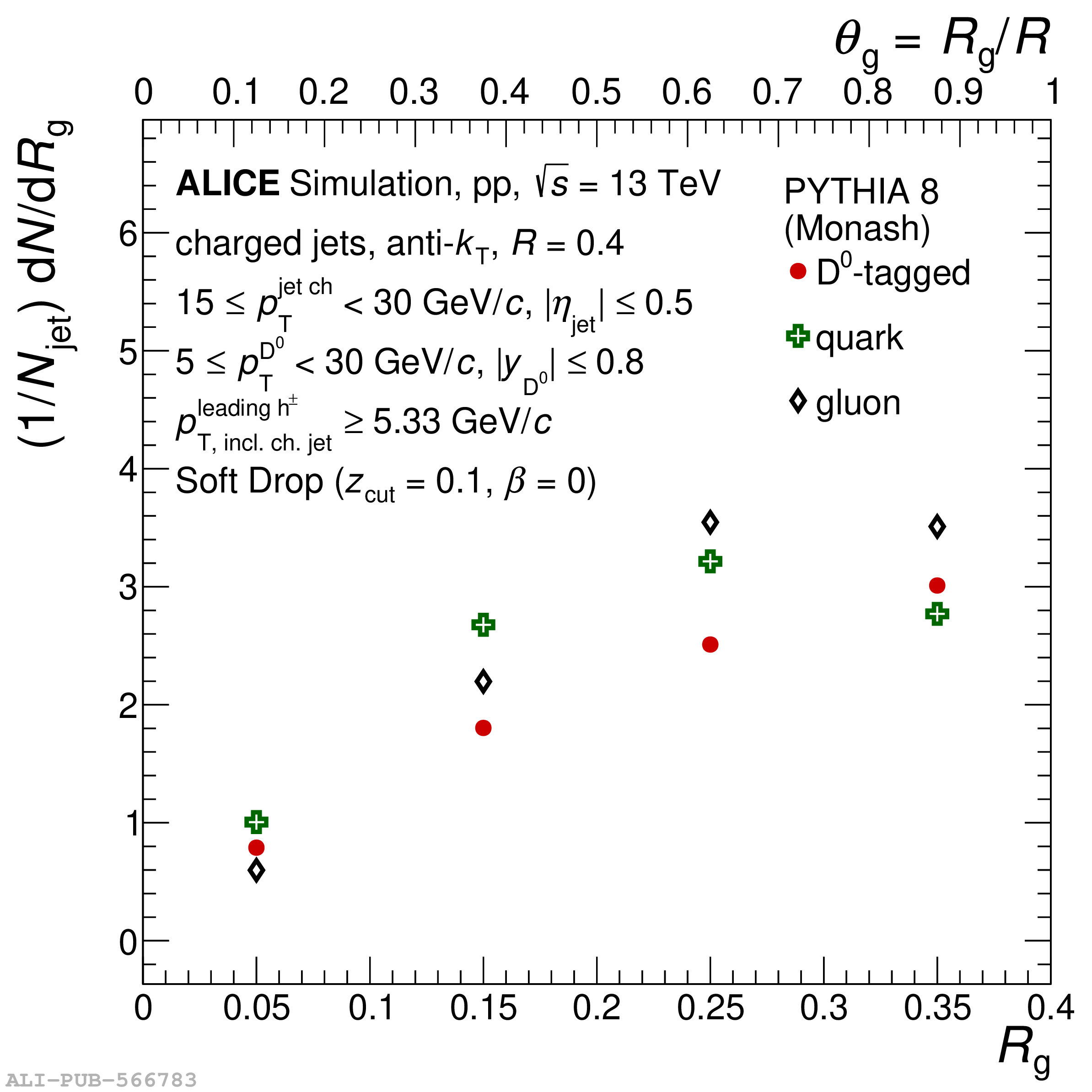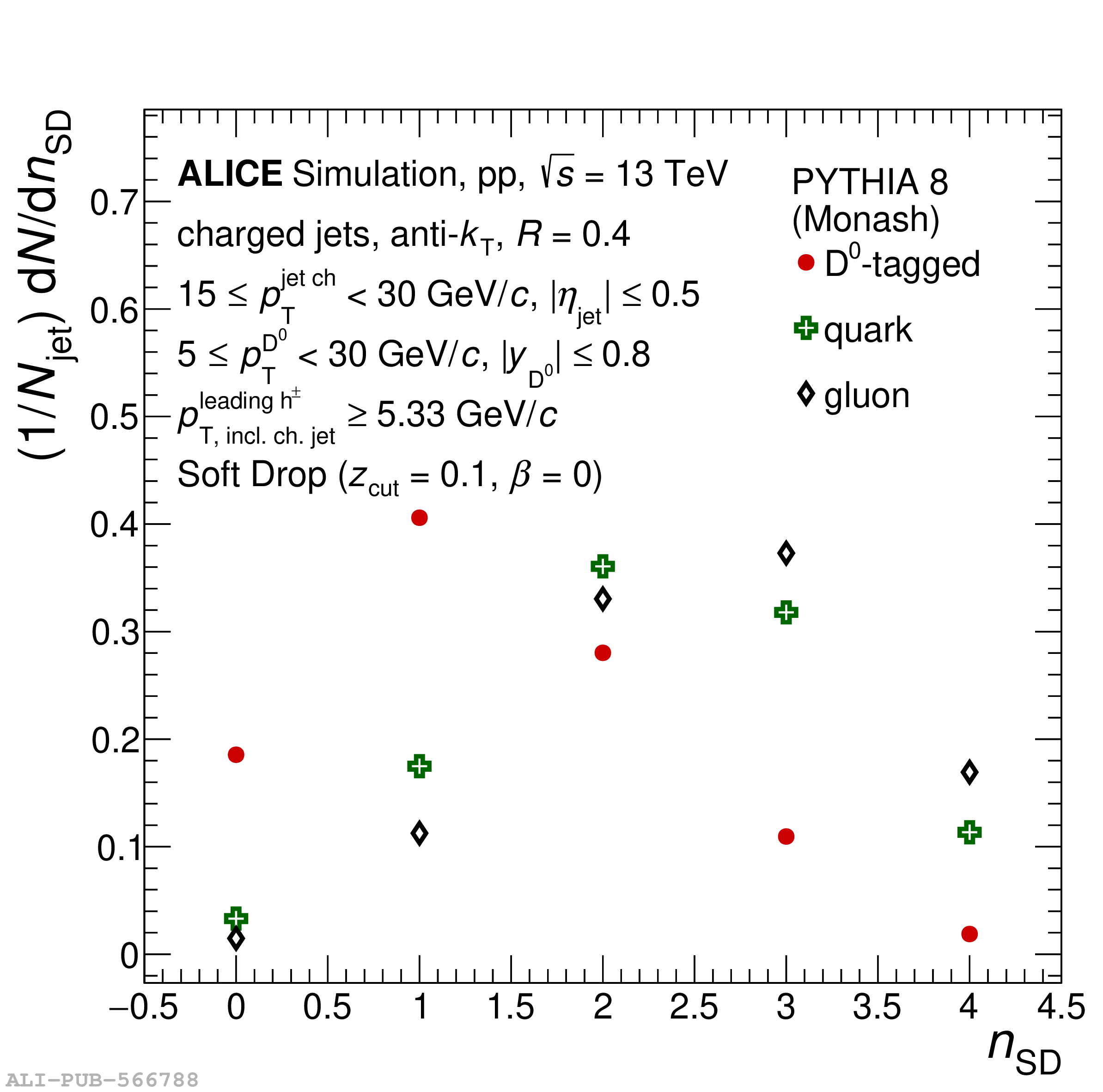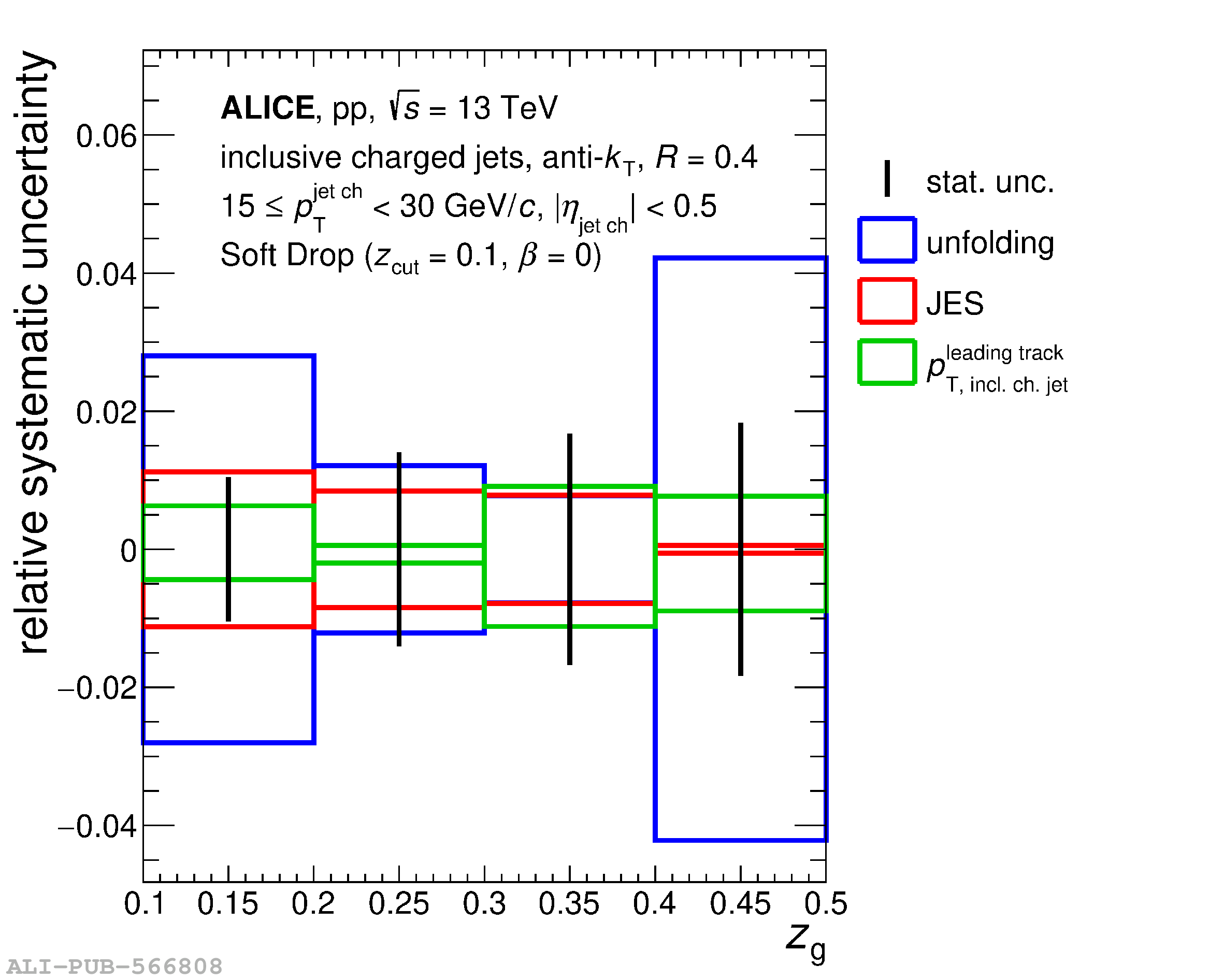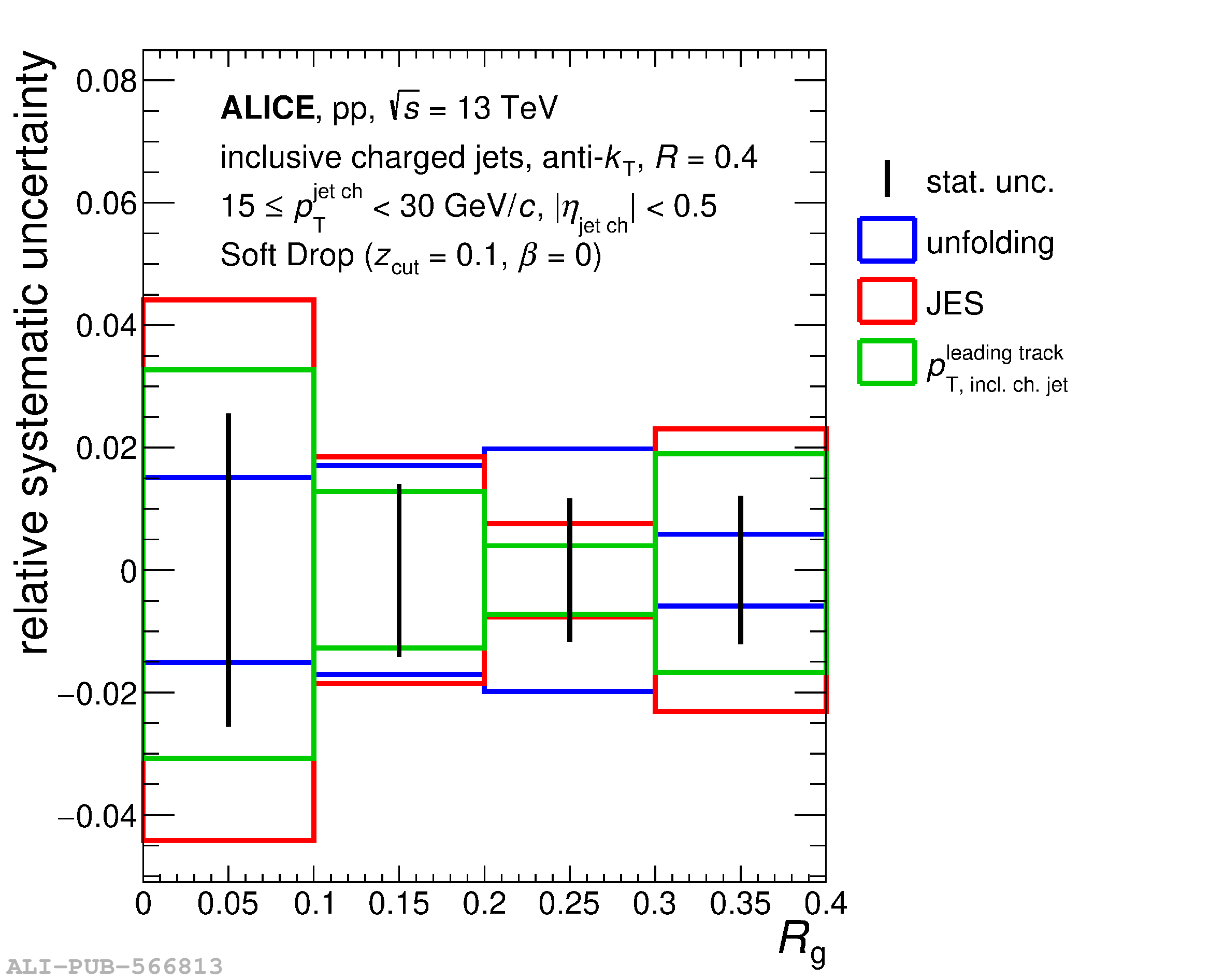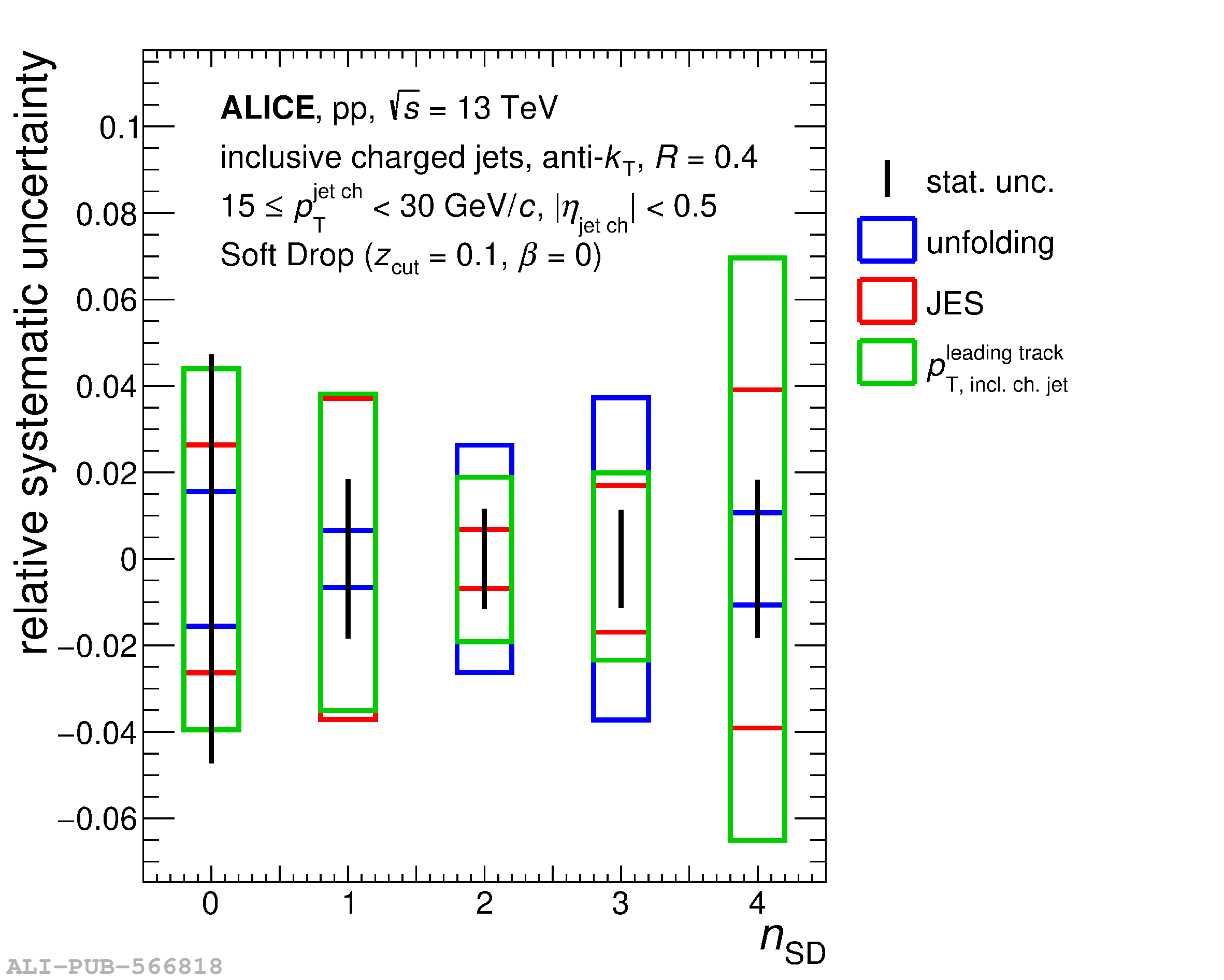Understanding the role of parton mass and Casimir colour factors in the quantum chromodynamics parton shower represents an important step in characterising the emission properties of heavy quarks. Recent experimental advances in jet substructure techniques have provided the opportunity to isolate and characterise gluon emissions from heavy quarks. In this work, the first direct experimental constraint on the charm-quark splitting function is presented, obtained via the measurement of the groomed shared momentum fraction of the first splitting in charm jets, tagged by a reconstructed ${\rm D}^0$ meson. The measurement is made in proton-proton collisions at $\sqrt{s}$ = 13 TeV, in the low jet transverse-momentum interval of $15 \leq p_{\rm T}^{\rm jet~ch} <~ 30$ GeV/$c$ where the emission properties are sensitive to parton mass effects. In addition, the opening angle of the first perturbative emission of the charm quark, as well as the number of perturbative emissions it undergoes, is reported. Comparisons to measurements of an inclusive-jet sample show a steeper splitting function for charm quarks compared with gluons and light quarks. Charm quarks also undergo fewer perturbative emissions in the parton shower, with a reduced probability of large-angle emissions.
Phys. Rev. Lett. 131 (2023) 192301
HEP Data
e-Print: arXiv:2208.04857 | PDF | inSPIRE
CERN-EP-2022-171
Figure group

